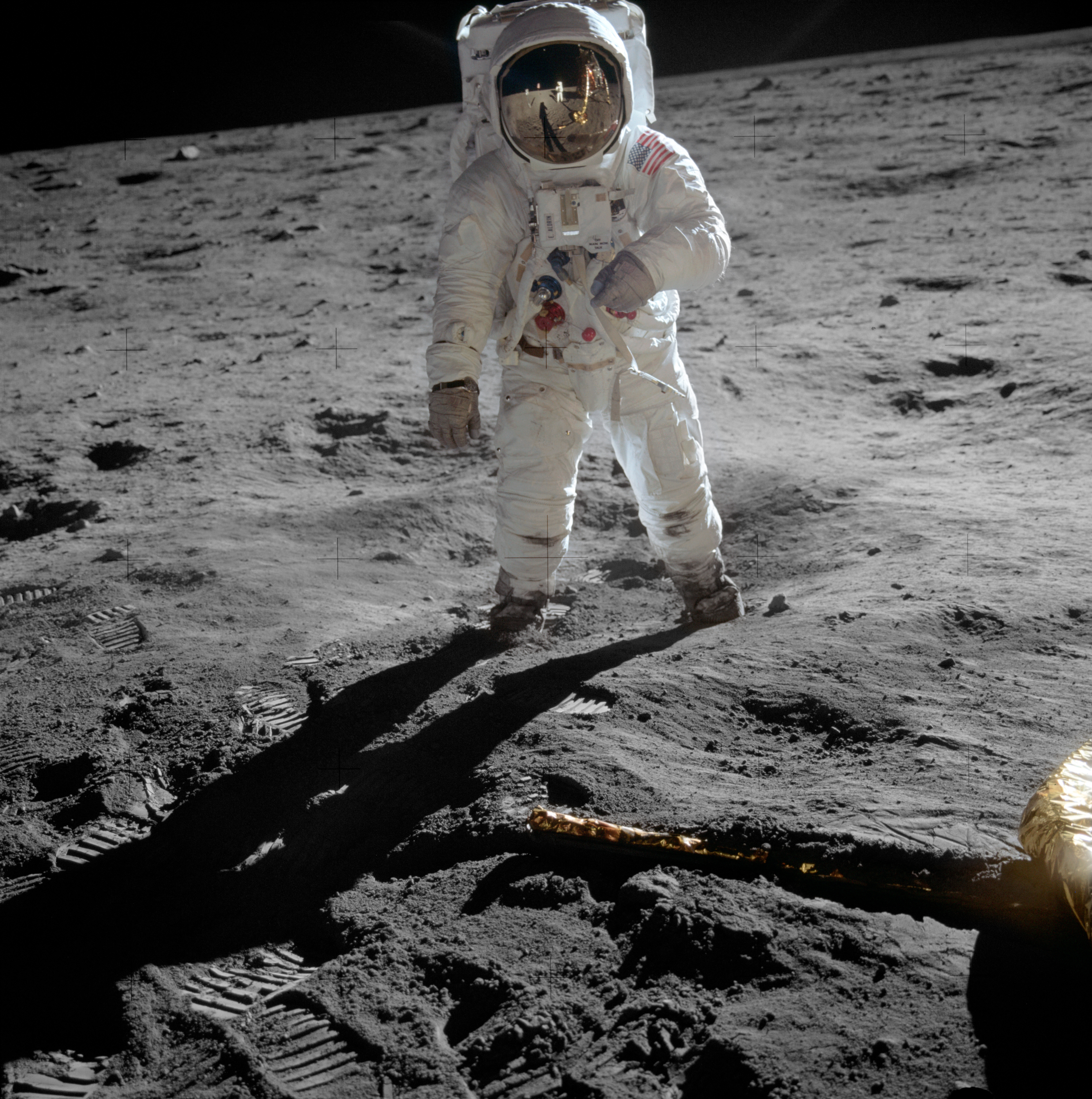 From now on we live in a world where man has walked on the Moon. It's not a miracle; we just decided to go.
From now on we live in a world where man has walked on the Moon. It's not a miracle; we just decided to go. - Tom Hanks
This week was the forty-third anniversery of the Apollo 11 moon landing. The moon landing, old news as it is treated today, was probably one of the most seminal dates in human history.
Crew of Apollo 11:
Commander Neil A Armstrong
Command Module Pilot Michael Collins
Lunar Module Pilot Edwin "Buzz" Aldrin Jr.
From July 20th 1969 until December 13, 1972, a dozen men walked on the moon. It's stunning to think they did so using less computing power than a typical wireless phone can use.
And in the forty years since, no human has left orbit.
It could be seen as depressing, not having followed the path we originally trod but in those forty years, unmanned space exploration has exploded, reaching out to Mars, Jupiter, Saturn and beyond. Voyager 1 will become the first man-made object to leave the solar system and venture into true interstellar space.
Last week NASA released an astonishing panoramic photo from Mars, taken by stitching together 817 images from the Mars Rover Opportunity, located at Endeavor Crater, Greeley Haven near Cape York. Opportunity is currently on Day 3,022...ON MARS. Keep repeating that fact in your head.
What's my point? It's good to reach beyond your grasp, to outstretch your talents and chase the impossible and the improbable as far as you dare.
Passage to India
O sun and moon and all you stars ! Sirius and Jupiter !
Passage to you !
Passage, immediate passage ! the blood burns in my veins !
Away O soul ! hoist instantly the anchor !
Cut the hawsers -— haul out -— shake out every sail !
Have we not stood here like trees in the ground long enough ?
Have we not grovel’d here long enough, eating and drinking like mere brutes ?
Have we not darken’d and dazed ourselves with books long enough ?
Sail forth —- steer for the deep waters only,
Reckless, O soul, exploring, I with thee, and thou with me,
For we are bound where mariner has not yet dared to go,
And we will risk the ship, ourselves and all.
O my brave soul ! O farther farther sail !
O daring joy, but safe ! are they not all the seas of God ?
O farther, farther, farther sail !
- Walt Whitman
http://photojournal.jpl.nasa.gov/catalog/PIA15689 - All images courtesy of NASA.




